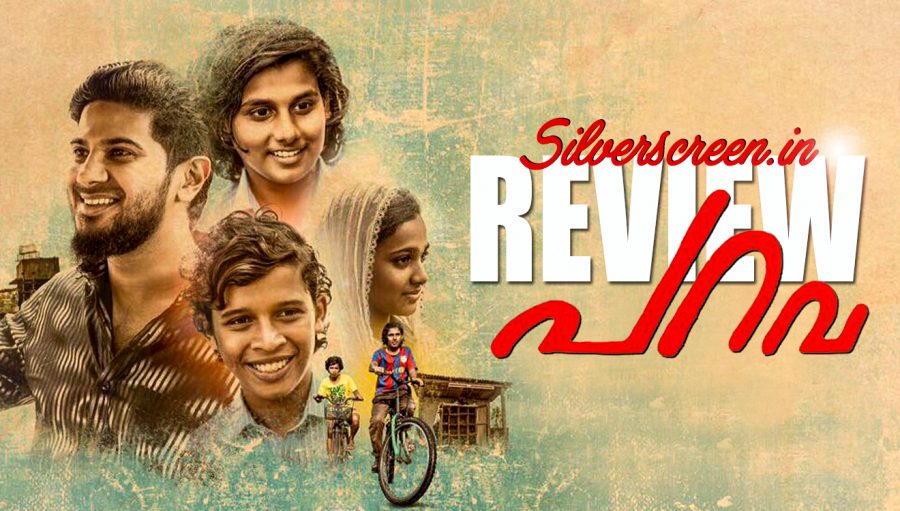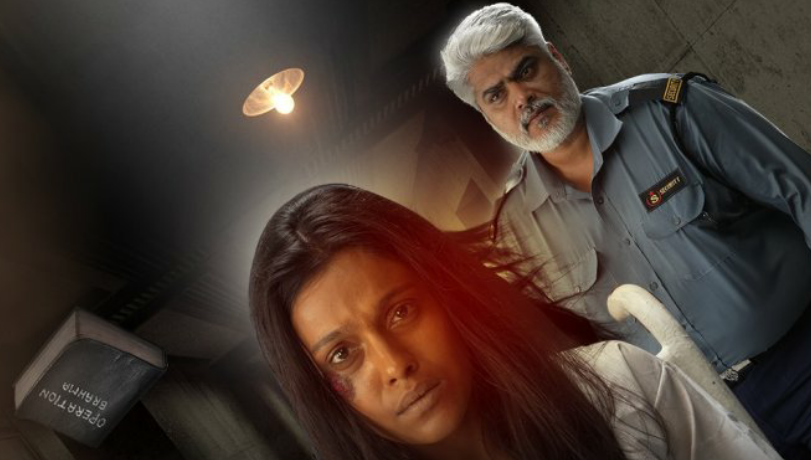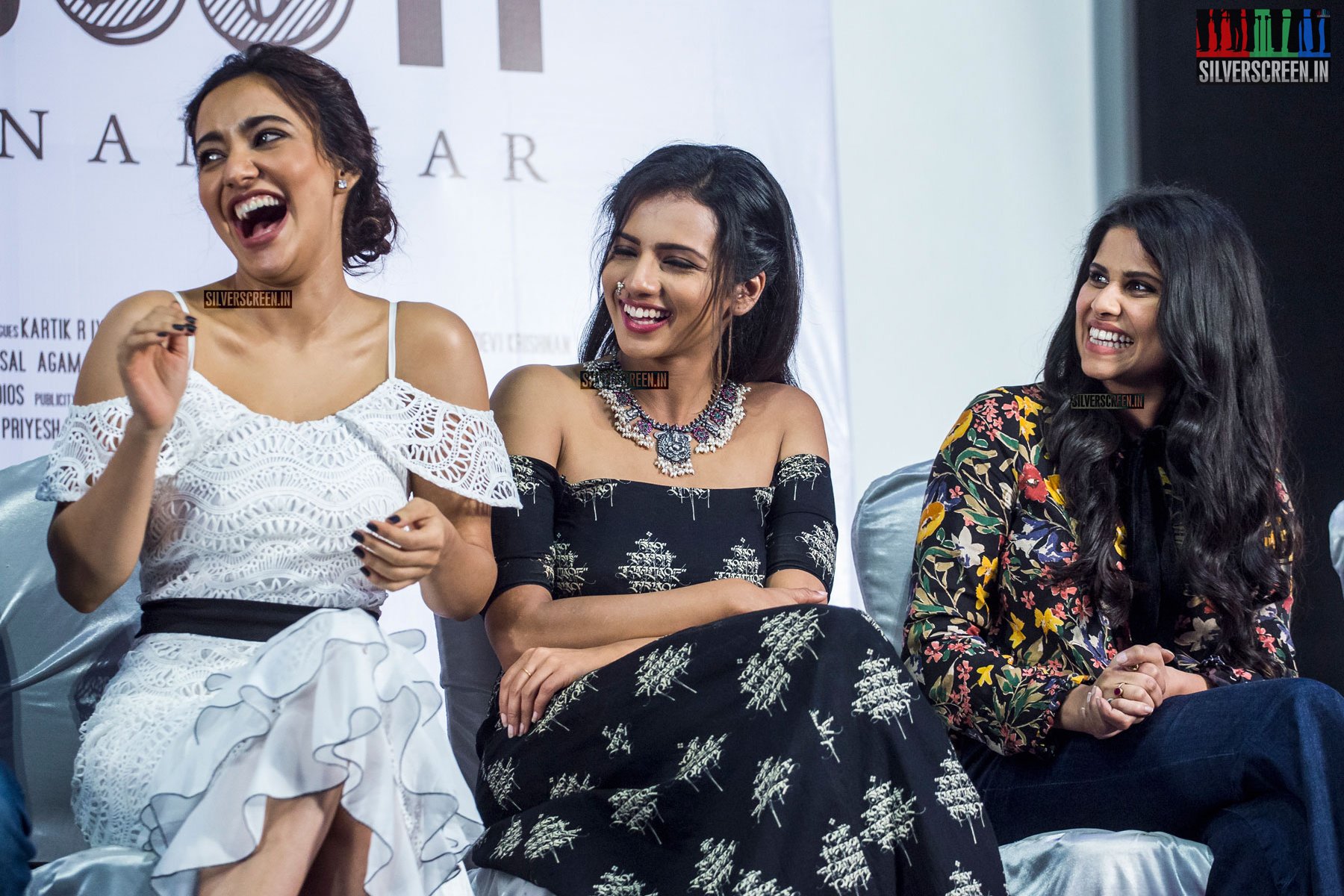Actor Soubin Shahir’s directorial debut, Parava (Bird), is an extraordinary coming-of-age film, the finesse of which isn’t limited to its story-line. It has a stunning grasp of the details of daily life in Mattanchery, an old, densely populated pocket in the city of Kochi. Right from scene one, where the film’s protagonists, two fourteen-year -old boys named Irshad (Amal Sha) and Haseeb (Govind Pai) steal back their favourite fish in the most ingenious way from a guy who’d stolen it from them, to the tale of guilt and redemption that unfurls in the latter half of the film, Parava is a compelling movie.
It possesses fine cinematic language. Many initial shots, framed within frames of doors and windows, create a description of the crammed spaces the characters live in. The characters are often surrounded by people, yet the loneliness and mental agony that some of them suffer from are beautifully visible. The cacophony of the place isn’t random, but with a rhythm that adds to the film’s drama. What binds it all is the seamless editing which is top-notch, a kind of artistic work that’s rare to find. Most importantly, Parava‘s triumph is by no means an accident. Every moment is composed carefully, without taking the audience for granted.
Parava‘s forte isn’t its plot, but the brilliant scenes and montages that are highly effective in their own right. For one, there is an early scene where the boys release two pigeons in the sky. Their rival, played by Shine Tom, is watching the birds fly. He rightly predicts that the flight won’t last long, for the bird is lost without its lover who is locked up. The scene is deeply moving, although it is sans frills or a backstory. In a few words and fantastic shots, Soubin transforms the sight of a bird’s flight into an intense tale of heartbreak.
It is this love for slice-of-life moments that cause the film to lose its orientation towards the end where it becomes a long-winded self-indulgent exercise. However, Soubin manages to steer it back safely, with some stylised stunt sequences that culminate in warm moments.
Parava is founded on a quality of humaneness. It isn’t loudly established, but gently and subtly unearthed from little moments. Irshad’s first day at school is infused with a lot of charm. He is the only student who has failed the final examination, and hence, not promoted to the next level. He is despondent. When Haseeb bids him goodbye, he cries, and an immensely kind class teacher, played by Unnimaya Prasad, whose smile lights up the screen, cheers him up. In another scene, you see the kids filling their cheeks with water and pouring it into their pigeons’ beaks. Littil Swayamp captures it in close-up shots, emphasising the closeness shared by the birds and the kids. Soubin looks for kindness not just in human beings, but in dogs and birds that inhabit the world.
The young actors, Amal Sha and Govind Pai, confidently anchor the narrative, often outperforming their senior co-stars. Some of the best parts in the film involve them training their beloved pigeons for a local flight contest, and preparing glass spool for kite. They aren’t merely doing it on screen, but are engrossed in it as if they are ever familiar with these activities.
There is a horde of talented actors in the film, who have delivered memorable performances. Dulquer Salmaan who plays Imran, Arjun Ashokan, playing Hakkim, a short-tempered youngster who admires Hashim Amla’s beard, and Shane Nigam, who plays Shane, a guilt-ridden depressed young man – all add to the film’s milieu. Even more nuanced is the performances of veteran actors like Indrans, Harisree Ashokan, Siddique and Jaffar Idukki.
The film’s territory is largely male – little boys who are slowly discovering their social space and experiencing sexual awakening, young men who have started feeling the pangs of adulthood, and older men who watch over the younger ones, to not let them slip into criminal behaviour. There is a handful of women characters, like Irshad’s first flame, a naive and young Suhara who is pushed into adulthood before she knows, and Habeeba (Srinda), their cheerful neighbour who goes numb when her employer asks her for sexual favours. The stories of these women aren’t important at the moment, for it could be a different film (which might never get made) altogether. A fault easily pardonable.
Recommended
Parava is a yet another glowing accomplishment for Mollywood which has already seen films such as Thondimuthalum Driksakshiyum and Angamaly Diaries this year. It is not entirely wrong to say that Parava is an improvement over the latter, a slice-of-life coming of age drama. If Angamaly Diaries had a style which was often all over the place, Parava is rightfully restrained. Soubin’s film is a mighty universe where several stories dwell together in a solemn decorum.
*****
The Paravan review is a Silverscreen original article. It was not paid for or commissioned by anyone associated with the movie. Silverscreen.in and its writers do not have any commercial relationship with movies that are reviewed on the site.



